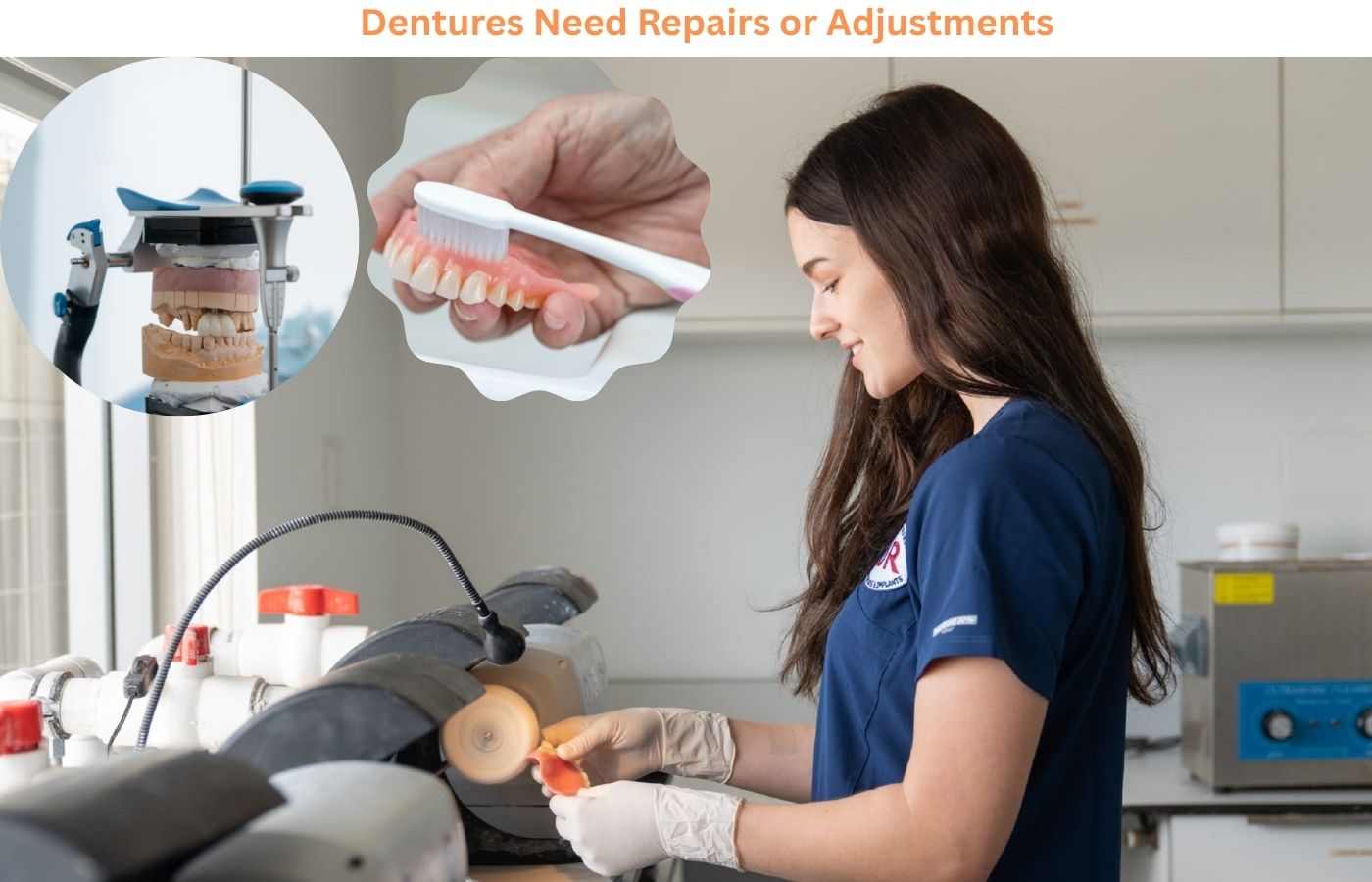
Dentures are a great solution for missing teeth, restoring not only your smile but also your ability to eat and speak confidently. However, like any dental appliance, dentures are not indestructible. Over time, you might experience discomfort or notice changes that signal the need for a denture repair or denture adjustment. Ignoring these signs can lead to further complications like mouth sores, difficulty eating, and even bone loss. Let’s explore the common signs dentures need repair and when it’s time to seek professional help.
Even the highest-quality dentures undergo wear and tear from daily use. Changes in your jawbone, gum tissue, or accidents like dropping your dentures can cause issues like loose dentures or broken dentures. Timely repairs or adjustments are essential for comfort, function, and oral health.
If your dentures feel like they are slipping while you talk or eat, they may have become loose. Over time, your jawbone can shrink, causing a poor fit. Loose dentures can lead to discomfort, mouth sores, and even changes in your speech. If you find yourself constantly adjusting your dentures with your tongue or adhesive, it’s time to see your dentist.
Cracks, chips, or missing pieces are clear indicators that you need denture repair immediately. Broken dentures not only affect your appearance but can also make chewing painful or even dangerous. Never attempt to glue broken dentures at home — professional repair is the safest option.
If you’re struggling to chew your food properly, it could be a sign that your dentures are no longer fitting right. Chewing difficulties can indicate alignment issues, worn-down surfaces, or even structural damage that requires a denture adjustment.
A well-fitting denture should never cause pain. If you experience sore spots, irritation, or denture pain, it’s a sign that your dentures might be rubbing against your gums incorrectly. Addressing the issue early can prevent infections and more serious problems.
New dentures may require a short adjustment period, but if you suddenly start slurring your words, whistling, or having trouble pronouncing certain words, it could indicate a denture fitting problem. A quick denture adjustment can usually solve this.
Even small cracks, chips, or fractures should not be ignored. Visible signs of wear may seem harmless at first, but they can worsen over time. Professional denture repair is necessary to restore both function and appearance.
Significant weight loss can affect the shape of your face and gums, leading to loose dentures. If your dentures feel different after weight changes, you might need relining dentures to improve the fit.
Dentures typically need to be replaced or adjusted every 5 to 7 years. If you’ve had your dentures for a while without any professional check-ups, you might experience hidden issues. Regular dental visits help detect fitting problems early.
When you notice any of the above signs, you might wonder how to fix dentures. Here’s what you should do:
Never try DIY repairs. Your dentist can assess the problem and recommend either an adjustment, reline, or a complete remake.
If your dentures are loose but not broken, your dentist may suggest relining dentures. This process involves reshaping the underside of the denture to fit your gums better.
Minor discomfort or sore spots can usually be corrected through a simple denture adjustment, where the dentist gently reshapes parts of the denture.
For cracks, breaks, or missing pieces, a professional denture repair can restore your appliance safely and quickly.
It’s important to address issues as soon as they appear to avoid more extensive repairs or complete replacement.
While some wear and tear are inevitable, you can extend the life of your dentures by following these tips:
Caring properly for your dentures will help you avoid frequent adjustments or costly repairs.
Recognizing the signs dentures need repair or adjustment is crucial for maintaining your oral health and overall comfort. Whether it’s loose dentures, broken dentures, denture pain, or denture fitting problems, seeking prompt professional help is key. Solutions like relining dentures, professional denture repair, or a simple denture adjustment can restore your smile and keep your dentures working as they should.
Don't wait until minor discomfort becomes a major issue—schedule a dental appointment at the first sign of trouble. Your smile deserves the best care possible!